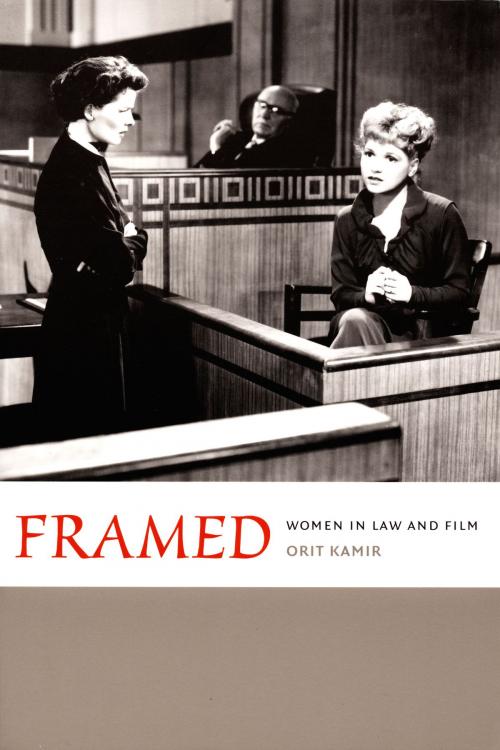Framed
Women in Law and Film
Nonfiction, Entertainment, Film, History & Criticism, Performing Arts, Social & Cultural Studies, Social Science, Gender Studies, Women&| Author: | Orit Kamir | ISBN: | 9780822387763 |
| Publisher: | Duke University Press | Publication: | January 19, 2006 |
| Imprint: | Duke University Press Books | Language: | English |
| Author: | Orit Kamir |
| ISBN: | 9780822387763 |
| Publisher: | Duke University Press |
| Publication: | January 19, 2006 |
| Imprint: | Duke University Press Books |
| Language: | English |
Some women attack and harm men who abuse them. Social norms, law, and films all participate in framing these occurrences, guiding us in understanding and judging them. How do social, legal, and cinematic conventions and mechanisms combine to lead us to condemn these women or exonerate them? What is it, exactly, that they teach us to find such women guilty or innocent of, and how do they do so?
Through innovative readings of a dozen movies made between 1928 and 2001 in Europe, Japan, and the United States, Orit Kamir shows that in representing “gender crimes,” feature films have constructed a cinematic jurisprudence, training audiences worldwide in patterns of judgment of women (and men) in such situations. Offering a novel formulation of the emerging field of law and film, Kamir combines basic legal concepts—murder, rape, provocation, insanity, and self-defense—with narratology, social science methodologies, and film studies.
Framed not only offers a unique study of law and film but also points toward new directions in feminist thought. Shedding light on central feminist themes such as victimization and agency, multiculturalism, and postmodernism, Kamir outlines a feminist cinematic legal critique, a perspective from which to evaluate the “cinematic legalism” that indoctrinates and disciplines audiences around the world. Bringing an original perspective to feminist analysis, she demonstrates that the distinction between honor and dignity has crucial implications for how societies construct women, their social status, and their legal rights. In Framed, she outlines a dignity-oriented, honor-sensitive feminist approach to law and film.
Some women attack and harm men who abuse them. Social norms, law, and films all participate in framing these occurrences, guiding us in understanding and judging them. How do social, legal, and cinematic conventions and mechanisms combine to lead us to condemn these women or exonerate them? What is it, exactly, that they teach us to find such women guilty or innocent of, and how do they do so?
Through innovative readings of a dozen movies made between 1928 and 2001 in Europe, Japan, and the United States, Orit Kamir shows that in representing “gender crimes,” feature films have constructed a cinematic jurisprudence, training audiences worldwide in patterns of judgment of women (and men) in such situations. Offering a novel formulation of the emerging field of law and film, Kamir combines basic legal concepts—murder, rape, provocation, insanity, and self-defense—with narratology, social science methodologies, and film studies.
Framed not only offers a unique study of law and film but also points toward new directions in feminist thought. Shedding light on central feminist themes such as victimization and agency, multiculturalism, and postmodernism, Kamir outlines a feminist cinematic legal critique, a perspective from which to evaluate the “cinematic legalism” that indoctrinates and disciplines audiences around the world. Bringing an original perspective to feminist analysis, she demonstrates that the distinction between honor and dignity has crucial implications for how societies construct women, their social status, and their legal rights. In Framed, she outlines a dignity-oriented, honor-sensitive feminist approach to law and film.















